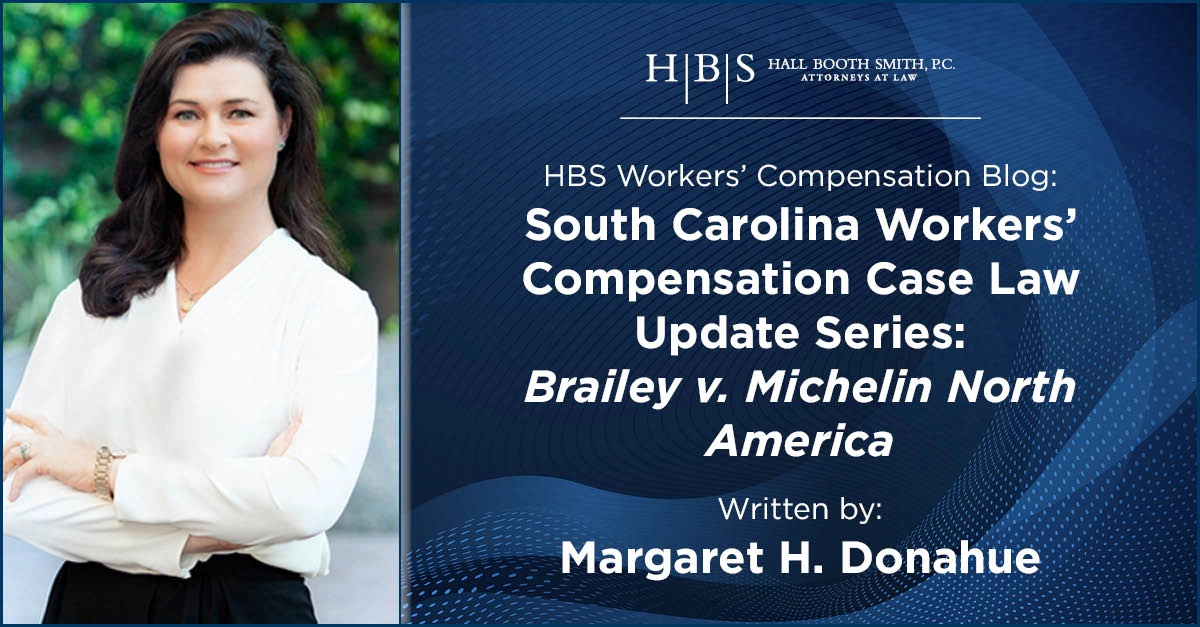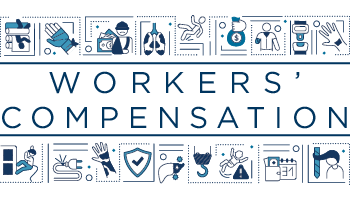
South Carolina Workers’ Compensation Case Law Update Series, Part III: Brailey v. Michelin North America
Introduction
The South Carolina appellate courts have been faced with several questions on workers’ compensation in recent months, producing opinions that will affect practice points and claims handling in defending workers compensation claims. In this series, I’ll discuss the rulings and how employers and carriers should be mindful of this precedent going forward.
The Case
Brailey v. Michelin North America
This case involves a back injury, and for which several defenses were raised, but the primary issue covered in the appeal decision by the South Carolina Supreme Court was that of fraud in the application for employment (aka fraud in the inducement of employment). The Court raised a concern with this affirmative defense as spelled out in the 1976 case of Cooper v. McDevitt & Street Co., 260 S.C. 463 (SC), 196 S.E.2d 833. Cooper established a three-prong test for fraud in application for employment as a total defense: 1) The employee concealed or misrepresented a prior injury or pre-existing condition on the employment application for purposes of obtaining the position (i.e., with fraudulent intent); 2) the fraud was a substantial element in the hiring decision—the employer substantially relied on the misrepresentation in hiring the employee; and 3) there is a causal connection between the fraud and the injury. Since the decision, Cooper was rendered to present, proving the causal connection was typically the most difficult hurdle. The injury at issue would generally have to involve the same body part as previously injured and a situation of an employee performing job duties beyond previously prescribed restrictions.
In Brailey, the Court explained that the defendants did not meet their burden in proving a causal relationship between the fraud and the injury, so the defense of fraud in the application failed regardless. However, the bulk of the opinion discussed the applicability of the Cooper test in the post-ADA world due to the ADA’s prohibition on asking about prior impairments until after the decision to hire, noting the ADA’s exclusion of certain medical questions or medical exams until after a bona fide offer of employment. The Court explained that because of these exclusions, Michelin could show in this case that it substantially relied on a fraudulent misrepresentation or non-disclosure in its decision to hire the claimant. The Court went on to state that it did not know how often this issue would arise with the second prong of the Cooper test before a workable resolution came about but that its strong preference is for the legislature to address the matter through a statutory solution. The Court further gave detail that this defense was not otherwise codified or referred to in the Act and was based on analysis that meeting the Cooper test resulted in negating the employment relationship, creating a jurisdictional issue. Thus, the jurisdictional aspect of Cooper presented a secondary concern: that the then-non-employee may be able to sue in tort. For those reasons, the Court opined that a statutory defense in the Act would be better able to solve both issues. This decision so disrupted the workers’ compensation bar when it was issued in July that the Court reissued the opinion in October, adding a sentence specifically stating that it was not overturning Cooper, just questioning its usefulness.
Fraud in the application for employment was always a difficult burden to carry for employers, as are most of the affirmative defenses by their design in an otherwise no-fault system. The first element of “fraud” requires some measure of willfulness or comprehension of wrongdoing on the part of the applicant. The second element, previously, was the least difficult to prove. It was not a difficult concept when an employer said, “The job requires XYZ, and the applicant said they were physically capable of those things. So, we relied on that in hiring him.” As stated above, the third element of causal connection specifically between the misrepresentation and the injury was typically where the wheels came off the defense. Proving each element of the Cooper test is extremely fact-specific and requires careful scrutiny of each element. This likely played a major role in the Court’s decision not to overturn it altogether and in making a point of saying so. There may still be situations in which the Cooper test could be successfully applied. Also, the Court certainly did not want to leave employers with nothing if there was a situation of true malfeasance; if nothing else, to give the parties incentive for settlement.
Unfortunately, putting the ball in the legislature’s court is a slow process. What do employers do in the meantime? While the ADA prohibits asking questions in applications about prior injuries or conditions, it does not prohibit employers from listing and asking for affirmation for physical demands/duties that are deemed essential to the particular position—essential to the point that the task could not reasonably be modified. To best ensure that candidates capable of safely performing a job are hired and to have a chance of a reasonable defense under Cooper if the situation arises, employers should include or attach a detailed job description with essential physical demands to job postings and applications with an attestation that the candidate has read and is capable of performing the essential functions of that position. For other guidance on what can be done during the pre-employment process to better screen candidates, employers should talk to their employment counsel about the Brailey ruling, the concept of fraud in the application, and what their options are in the states where they do business.
Disclaimer
This material is provided for informational purposes only. It is not intended to constitute legal advice nor does it create a client-lawyer relationship between Hall Booth Smith, P.C. and any recipient. Recipients should consult with counsel before taking any actions based on the information contained within this material. This material may be considered attorney advertising in some jurisdictions. Prior results do not guarantee a similar outcome.
Blog Overview
About the Author
Margaret H. “Meg” Donahue
Of Counsel | Charleston Office
T: 803.730.3978
E: mdonahue@hallboothsmith.com
Charleston Of Counsel Margaret H. “Meg” Donahue represents employers and insurance carriers in coverage disputes, compensability, permanency disputes, medically complex cases, and toxic exposure in the workplace. She advises clients in defensive strategy, claim valuation, and mitigation of risk and loss.




Leave a comment
You must be logged in to post a comment.